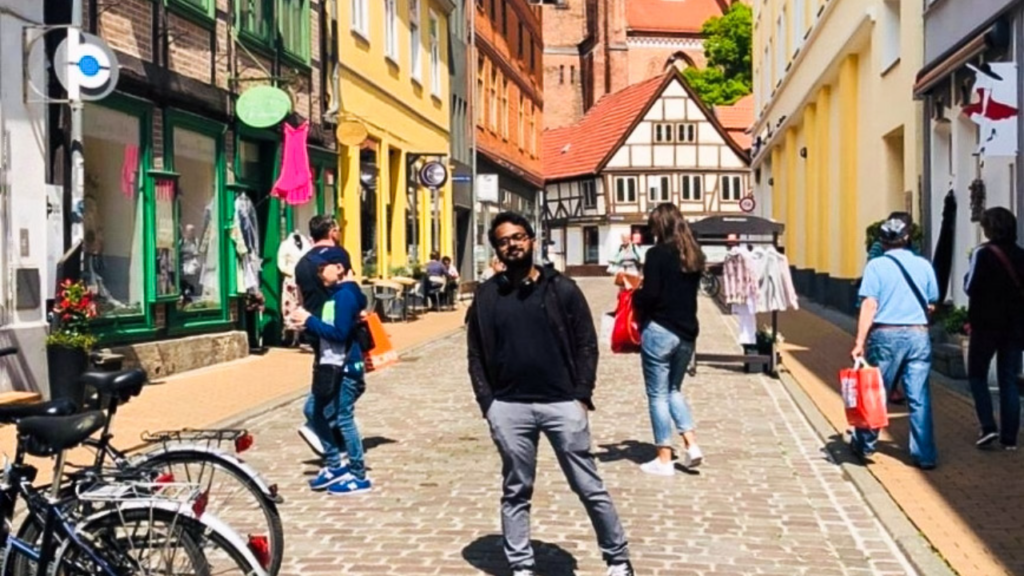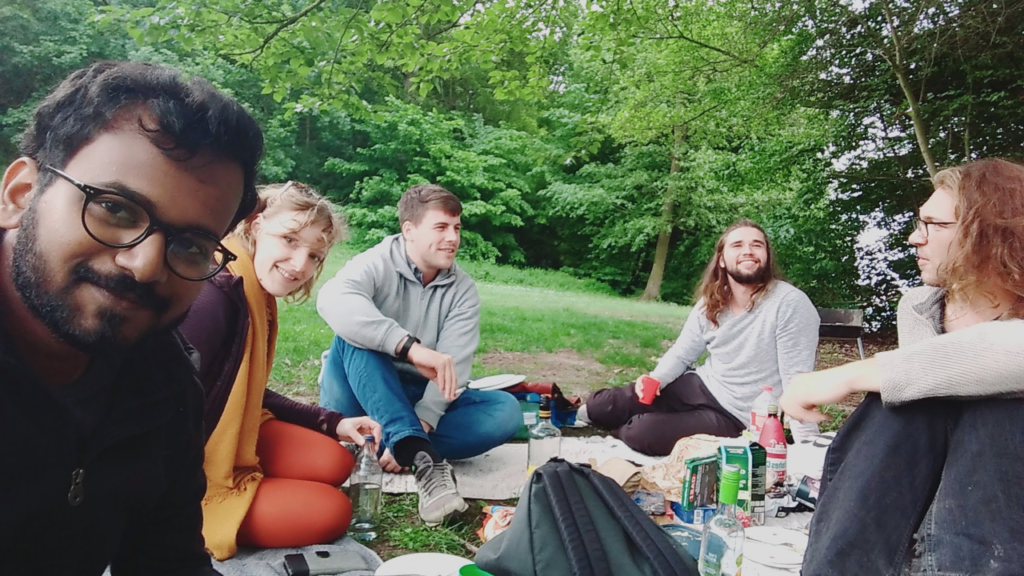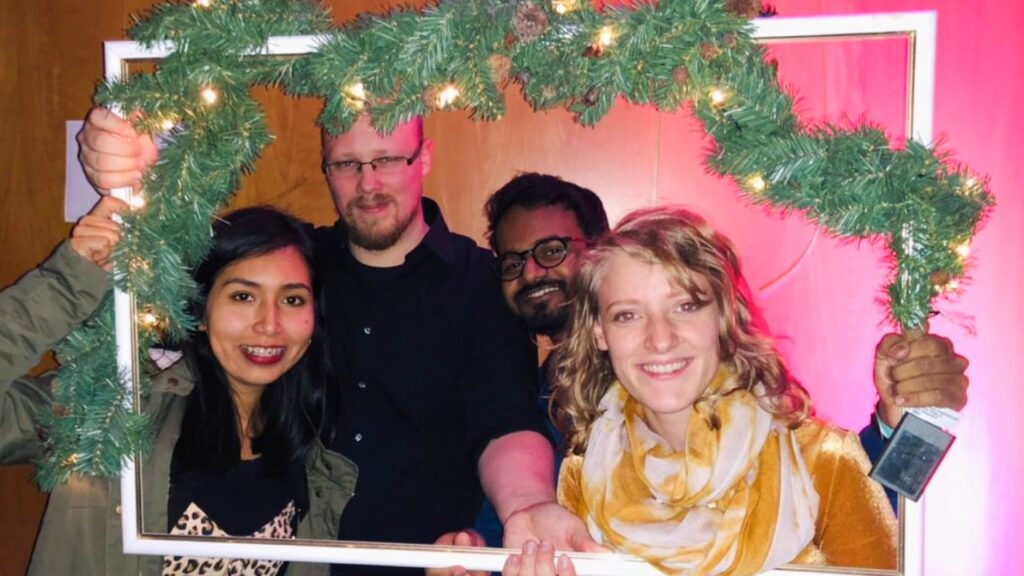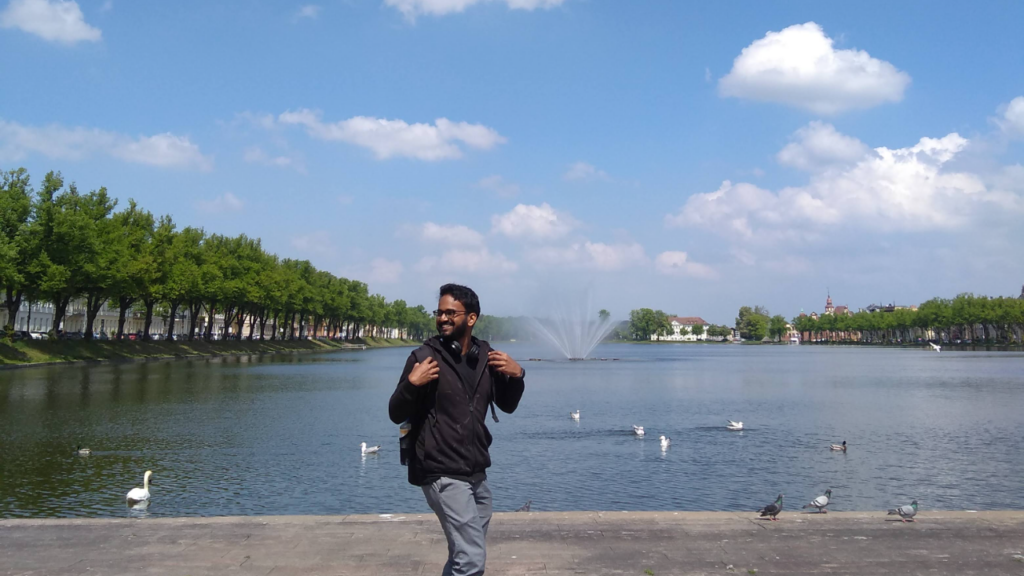I joined my current firm in Berlin after completing a Masters in Landscape Architecture from Hochschule Neubrandenburg, three years ago. I spoke with Leap about my journey for their expert student series— Indians who had studied abroad in recent years and gotten a job— because I want to help others wanting to take the same career jump that I made.
“The decision to pursue a masters in Germany changed my life.“
Sanjay Mamveettil
The following is from our interview and has been edited and condensed for clarity.
Studying in Germany
I’m originally from Kerala. I did a Bachelor of Architecture in my undergrad, and well, the job market in India really crushed me. I worked for one year as an architect, but there are a lot of issues in terms of low pay and the scarcity of good jobs.
Choose your dream country
When do you want to study abroad?
What's your highest level of education?
Select you current city
How Leap will help you
Personalised University Shortlist
Express Applications with Quicker Admits
End-to-End Application Support
And I thought, yeah, why don't I do something that's going to help me a little bit more in terms of career. I knew one of my friends was already living in Germany, I spoke with him, and that’s how I came to know that there’s no tuition fee here.
Compared to different foreign school programs, it sounded to be the best idea because there is less financing to do. And most of the applications are online and you get through, so you don't need a lot of crazy processes to get admission.

The process of getting admission
I applied to five universities. It’s always the best thing to do when you apply in Germany, for example, or any other foreign university, it's best to have more chances. So I made a short list of some universities based on what I liked— I was interested in landscape architecture because I did my thesis in landscape architecture— and applied.
I got into two programs, one of them was for landscape architecture.
The differences in the education system between Germany and India
So in terms of college in India, we need to go to class every day, for example. And that's really not the case when you study master's here. Like you have probably three days of class and your classes are based on your professor's schedules.
So they publish on the website beforehand when you would class the next week. So you have a lot of free time in between and you can navigate your time in other things as well, like a part-time job for example.
And in terms of education or the teaching itself, it's not spoon feeding. You don't get textbooks and you need to study literally from there. In architecture especially, you just have presentations mostly. I had no written exams in my course at all. It was mostly we have each design projects each semester, and then you present it. It is pretty similar to India in that way, but you have the opportunity to mingle with a lot more people and get to know different ideas.
So the international aspect of it was really, really helpful in that way, I would say.
Spending free time, weekends in a new country
My flatmates took me to places and not a lot of them require entry. Like a fest happening in the market of the city, farmers market student group events, University events.
My university was in Neubrandenburg. It's a city that's very close to a lake. There's a huge lake and then our university is right at the bank of the lake. Every summer, there will be a small boat race, like you take a canoe and you have different groups and you race each other.
When I shifted to Berlin, a more international city, these things changed. There are meetups, like an art class, walking, running groups, there’s lots of stuff. You can go out and party, but that stuff depends on how much you’re willing to spend.

My total expenses
There were no educational expenses as I went to public university. My biggest expenses were rent and the food, and after a year I’d spent around 5,000 euros. In my second year I shifted to Berlin, a bigger city with higher rents, so there I spent around 7,000 euros, while making a small salary from my internship for four months, and a student job for two months.
Finding a well-paying part-time job
The one people a lot go to is Amazon, like Amazon warehouses. You can stack things, pack things. That is the easiest job you can find and in two months you can make 1300-1500 euros working just 20 hours a week.
Life is much better after this decision
You could go to other places like the US, or the UK maybe and make more money. But a lot of other things I would say like the work-life balance, that is something that I really, really, really value in German culture.
You can leave your office when the time is done. And there is more of a balance in terms of, so if, for example, my boss asked me to work on Saturday and I would say, no, it's not possible. Like I have other plans and that goes. And that's not the case in India.
I'm happy here.I work a proper nine-to-five job, but after that, I'm free. And I make way more than I would in India.
Advice on how to find a job
There are two most important things. First, make good connections in the University itself. My professors recommended me for my internship. So I didn't have to go through the crazy task of sending 100 applications and waiting for it. And when you apply for a job here in Germany, you need to send a lot of applications. And it's quite different from India, as each company has a different format. You combine your CV, portfolio and Cover letter sent specifically to different companies with addressing their own format.
Sometimes you need to wait three or four weeks for an answer, which is quite normal. Waiting is the norm, don’t get frustrated. And it's also normal to send like 100 applications. Don’t fret.
Second most important thing for any student is to learn the language. You can survive with English, but there is a limit for how high you can rise. And after that, the companies prefer somebody who speaks German.
Especially in a service industry like architecture, you need to go to the construction site. You need to talk to people. You need to tell the workers what to do and they don’t know english.

Managing the transition emotionally
If you’re someone who stresses out too much over things like language, which kinda extends to loneliness, then don’t do it. And if you are coming here, don’t compare your journey with others. Some people would learn the language quickly, some won’t. It takes time, but in the end it should work out.
Take it easy.
















Have Questions? Get Guidance to reach your Dream University
Connect with India's finest counsellors and biggest study abroad community.
Get Guidance